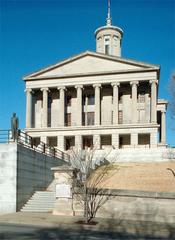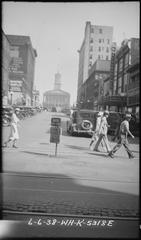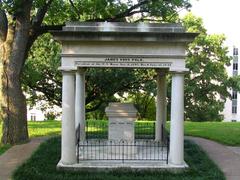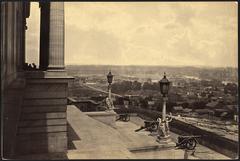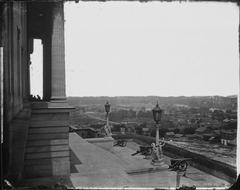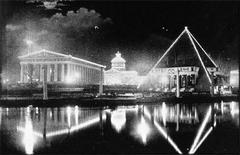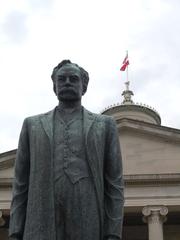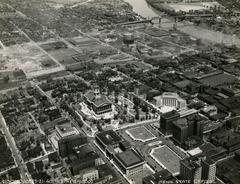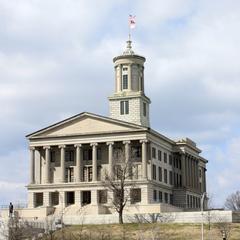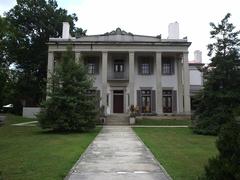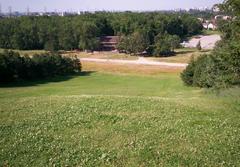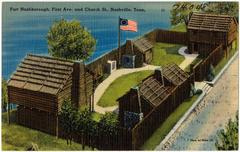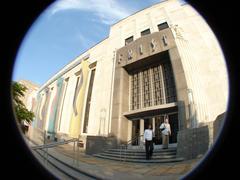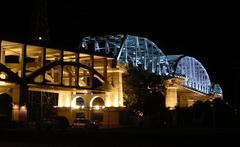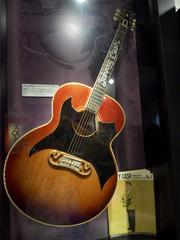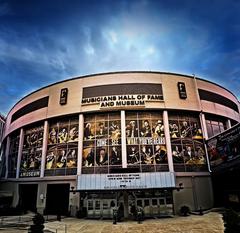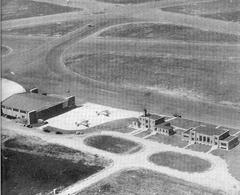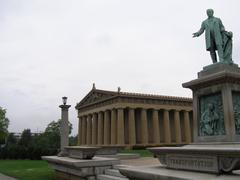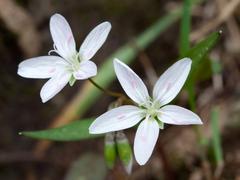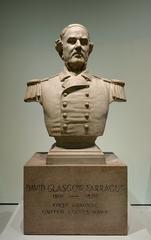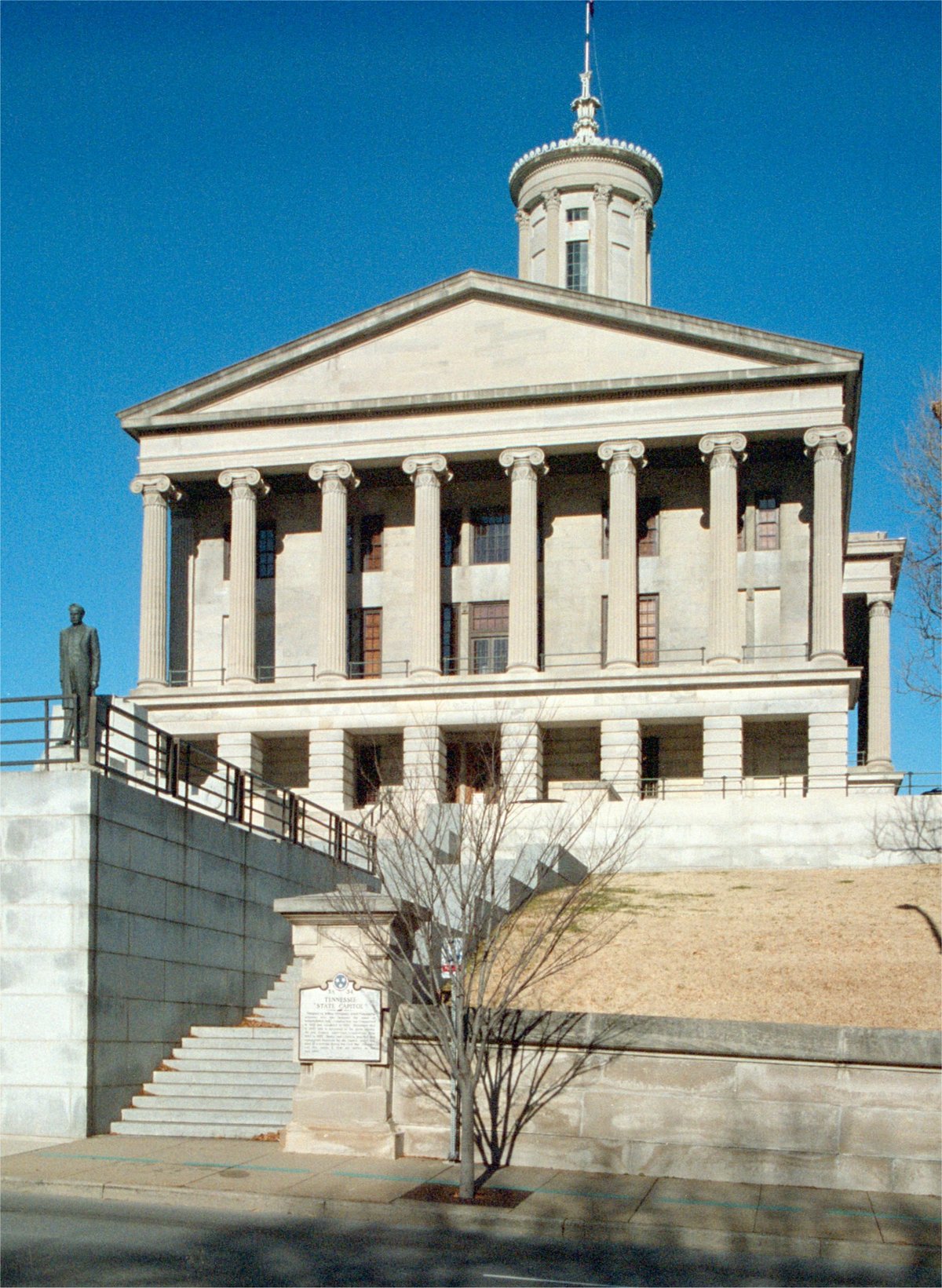
Tennessee State Capitol Visiting Hours, Tickets, and Visitor Guide: Explore Nashville’s Iconic Landmark
Date: 14/06/2025
Introduction
The Tennessee State Capitol, perched atop Capitol Hill in downtown Nashville, stands as a distinguished symbol of the state’s political heritage, architectural splendor, and historical significance. Completed in 1859 and designed by renowned architect William Strickland, the Capitol is a National Historic Landmark and among the oldest working state capitols in the United States. Its Greek Revival architecture, storied past, and pivotal role in Tennessee’s civic life make it an essential destination for history enthusiasts, architecture admirers, and visitors to Nashville alike (Centric Architecture, Tennessee State Capitol official site).
This comprehensive guide details everything you need to know for a memorable visit, including Tennessee State Capitol visiting hours, ticketing, tours, accessibility, nearby attractions, and practical travel tips. Whether you’re seeking insights into the Capitol’s architectural vision, its role during the Civil War, or the best photo spots, you’ll find all the information you need to plan your visit.
Table of Contents
- Overview and Historical Significance
- Location and Accessibility
- Visiting Hours and Ticketing Information
- Guided Tours and Self-Guided Experiences
- Security and Entry Procedures
- Architectural Highlights and Interior Features
- Grounds, Monuments, and Landscape Design
- Nearby Attractions and Things to Do in Nashville
- Visitor Amenities and Accessibility
- Tips for a Memorable Visit
- Frequently Asked Questions (FAQ)
- Conclusion
- References
Overview and Historical Significance
The Tennessee State Capitol is not only the seat of state government, housing the Tennessee General Assembly and the Governor’s office, but also a living monument to the state’s history. As a Greek Revival masterpiece, it is set apart by its limestone façade, Corinthian columns, and signature lantern tower. The Capitol has witnessed pivotal events, including Tennessee’s decision to secede during the Civil War and the ratification of the 19th Amendment granting women the right to vote. The building and its grounds honor prominent figures such as Presidents Andrew Jackson, Andrew Johnson, and James K. Polk, whose tomb is located on site (Trip101).
Location and Accessibility
Address:
600 Dr. Martin Luther King Jr. Blvd, Nashville, TN 37243
Situated in the heart of downtown Nashville, the Capitol is easily accessible by car, public transportation, or on foot. Several city bus routes serve the area, and metered street parking and public garages are available nearby. The central location allows for easy exploration of other historical and cultural sites such as the Tennessee State Museum and Bicentennial Capitol Mall State Park.
Accessibility:
The Capitol is fully wheelchair accessible, with ramps, elevators, and accessible restrooms. Service animals are welcome, and accommodations are available for visitors with disabilities (Tennessee State Museum).
Visiting Hours and Ticketing Information
- Hours: Monday–Friday, 8:00 a.m. to 4:30 p.m.
- Closed: Weekends and major state holidays
- Admission: Free for all visitors
- Tours: Guided tours are free and can be reserved online or at the visitor center. Self-guided tours are welcome during open hours.
Note: Visiting hours and tour offerings may change during legislative sessions, special events, or for security reasons. Always check the official Tennessee State Capitol website before your visit for the most current information.
Guided Tours and Self-Guided Experiences
Guided Tours:
Free guided tours are available Monday through Friday, typically lasting 45–60 minutes. Knowledgeable guides provide insights into the Capitol’s political history, architectural features, and notable events. Highlights include the House and Senate chambers, Governor’s office, and historic rooms with period furnishings.
Self-Guided Tours:
Informational brochures and interpretive signage are available throughout the building. Audio guides and digital resources can be accessed via the Capitol’s website or compatible travel apps such as Audiala, enhancing your self-guided experience.
Photography:
Photography is permitted in most public areas. Flash photography, tripods, and photography during legislative sessions may be restricted.
Security and Entry Procedures
All visitors must pass through a security screening, similar to airport procedures. To expedite entry:
- Bring only essential items.
- Avoid bringing large bags or backpacks.
- Follow all posted guidelines and staff instructions.
Architectural Highlights and Interior Features
Designed by William Strickland, the Capitol’s Greek Revival architecture is evident in its symmetrical façade, pedimented portico, and imposing Corinthian columns. It is one of only twelve U.S. state capitols without a traditional dome, featuring instead a unique lantern tower.
Key Features:
- Exterior: Locally quarried Tennessee limestone, 12 Corinthian columns, bronze doors.
- Interior: Grand central staircase, rotunda with murals, high ceilings, intricate plasterwork, and period artwork.
- Historic Rooms: Ceremonial Governor’s office and legislative chambers with hand-painted ceilings and restored details (Centric Architecture, LaptopMag).
Grounds, Monuments, and Landscape Design
The Capitol sits atop a grassy hill, surrounded by magnolias, maples, and hickory trees. The landscaped grounds feature gardens with circular beds arranged in the shape of three stars—a motif from the Tennessee state flag.
Notable Monuments and Memorials:
- Presidential Statues: Andrew Jackson, Andrew Johnson
- Polk Tomb: Resting place of President James K. Polk and Sarah Childress Polk
- Other Monuments: Sgt. Alvin York, Sam Davis, and commemorative plaques
- East Garden: Features Clark Mills’ equestrian statue of Andrew Jackson and two circular fountains
- Overlook: North side offers panoramic views of Bicentennial Capitol Mall State Park (The Cultural Landscape Foundation).
Nearby Attractions and Things to Do in Nashville
Combine your Capitol visit with nearby attractions for a full day of Nashville’s history and culture:
- Bicentennial Capitol Mall State Park: Expansive green space and historical monuments
- Tennessee State Museum: Exhibits on state history and culture
- War Memorial Auditorium: Historic performance venue
- Nashville Farmers’ Market: Local foods, crafts, and events
- Frist Art Museum: Art exhibitions in a stunning Art Deco building
Visitor Amenities and Accessibility
- Restrooms: Available on the main floor
- Water Fountains: Conveniently located
- No On-site Café or Gift Shop: Dining and shopping available nearby, including at the Tennessee State Museum
- Family-Friendly: Educational exhibits and tours suitable for children; strollers are permitted
Tips for a Memorable Visit
- Arrive Early: Morning hours are less crowded and ideal for photos
- Wear Comfortable Shoes: Expect to walk and stand during tours
- Check the Weather: Grounds and adjacent parks are best enjoyed in pleasant weather
- Combine Attractions: Plan to visit the State Museum or Capitol Mall on the same day
- Download Travel Apps: Use Audiala or similar apps for audio guides and updates
- Respect Security Protocols: Allow extra time for screening
Frequently Asked Questions (FAQ)
Q: Is there an admission fee or tickets required?
A: No, both admission and tours are free; no tickets required for general entry.
Q: What are the Tennessee State Capitol visiting hours?
A: Open Monday–Friday, 8:00 a.m. to 4:30 p.m.; closed weekends and state holidays.
Q: Are guided tours available?
A: Yes, free guided tours are offered on weekdays. Reserve online or at the visitor center.
Q: Is the Capitol wheelchair accessible?
A: Yes, the building and grounds are fully accessible.
Q: Can I take photographs inside?
A: Yes, in most public areas. Restrictions may apply during legislative sessions.
Q: Are there special events at the Capitol?
A: Yes, including public events, commemorations, and educational programs.
Conclusion
The Tennessee State Capitol stands as a testament to the state’s architectural, political, and cultural legacy. Its free admission, guided tours, and central location make it a highlight for any Nashville itinerary. Whether you’re interested in history, government, or the beauty of Greek Revival design, the Capitol offers a welcoming and enriching experience for all visitors.
Before your visit, check the official Tennessee State Capitol website for the latest hours, tour information, and updates. Enhance your experience with digital resources and travel apps like Audiala, and be sure to explore the vibrant attractions surrounding this iconic landmark.
References and Further Reading
- Tennessee State Capitol Visiting Hours, Tickets, and Historical Guide, 2024 (Tennessee State Capitol official site)
- Visiting the Tennessee State Capitol: Hours, Tickets, History, and Architectural Highlights, 2024 (Trip101)
- Tennessee State Museum: Field Trips and Visitor Programs (Tennessee State Museum)
- Tennessee State Capitol Visitor Experience Guide (Tennessee State Capitol Visitor Site)
- Centric Architecture: Tennessee State Capitol Project (Centric Architecture)
- The Cultural Landscape Foundation: Tennessee State Capitol (The Cultural Landscape Foundation)
- Nashville Tourism Official Site (Nashville Tourism)
- Trolley Tours Nashville: Tennessee State Capitol Information (Trolley Tours)
